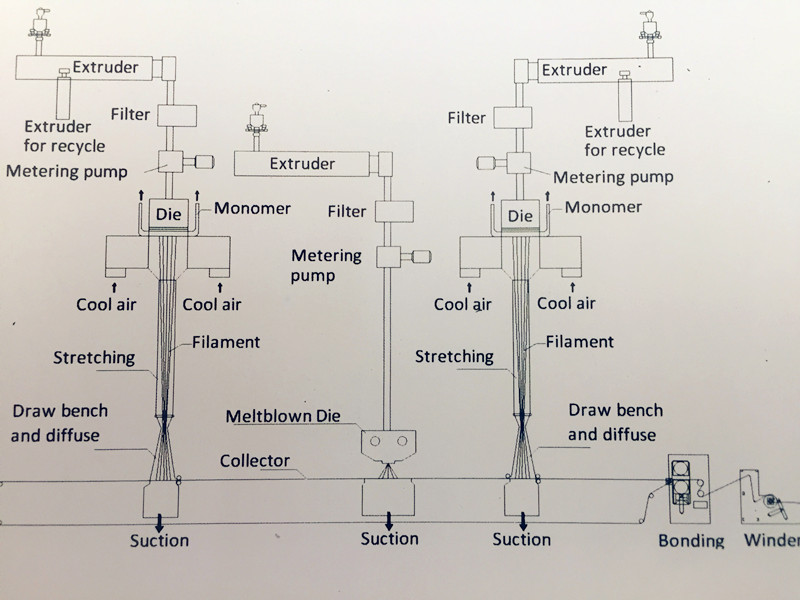Scientists have developed some new ultra-fast charging lithium-ion batteries that can charge up to 70% in just two minutes, which will be a significant improvement in current batteries. This new technology has been established by scientists at Singapore's Nanyang Technological University and can be recharged in a matter of minutes. These new batteries will also have a long span of approximately 20 years. These new lithium-ion batteries will have a large number of applications, including electric vehicles, which will enable future electric vehicles to charge about 20 times faster than the current version. They will also be more durable, current batteries can be cycled 500 times, and these new batteries will be able to have 10,000 cycles. SMS Composite Nonwoven Line Series
SMS composite nonwoven lines distribute polypropylene (PP) by two spunbond dies and one meltblown die, which produces a kind of composite nonwoven fabric. The product of meltblown die is in the middle and the product of two spunbond dies is on the top and at the bottom. SMS nonwoven machine compounds those three products together, producing the tighter and stronger nonwoven fabric. The product of SMS nonwoven machine is more suitable for surgical gowns, protective clothes, disposable sanitary cloth and so on.
Main Parameters of SMS Composite Non-woven Line:
Quantity of Die
Spunbond Unit: 2 sets
Meltblown Unit: 1 set
Effective Width <mm>
1600
2400
3200
GSM<g/㎡>
12-100
Embossing Pattern
Diamond
Oval
*Customizable
If you have any question about the nonwoven production line, please contact us directly. We will reply you as soon as possible. We are willing to take you to visit the factory.
SMS Nonwoven Fabric Making Machine,SMS Composite Nonwoven Line, SMS Composite Nonwoven Machine, SMS Nonwoven Machine Yangzhou Yuyang Nonwoven Machinery Co., Ltd , https://www.yy-machinery.com
“With our nanotechnology, electric vehicles have dramatically increased their charging range and will be able to charge just five minutes, which is equivalent to the time needed to pump petrol cars,†said Professor Chen. "Equally important, we can now greatly reduce the waste generated by setting up batteries because our batteries last year are 10 times longer than the current generation of lithium-ion batteries." Electric vehicles will also have considerable cost savings in the future. As the battery will not need to be replaced often, it can cost about 5000 US dollars in an instant.
